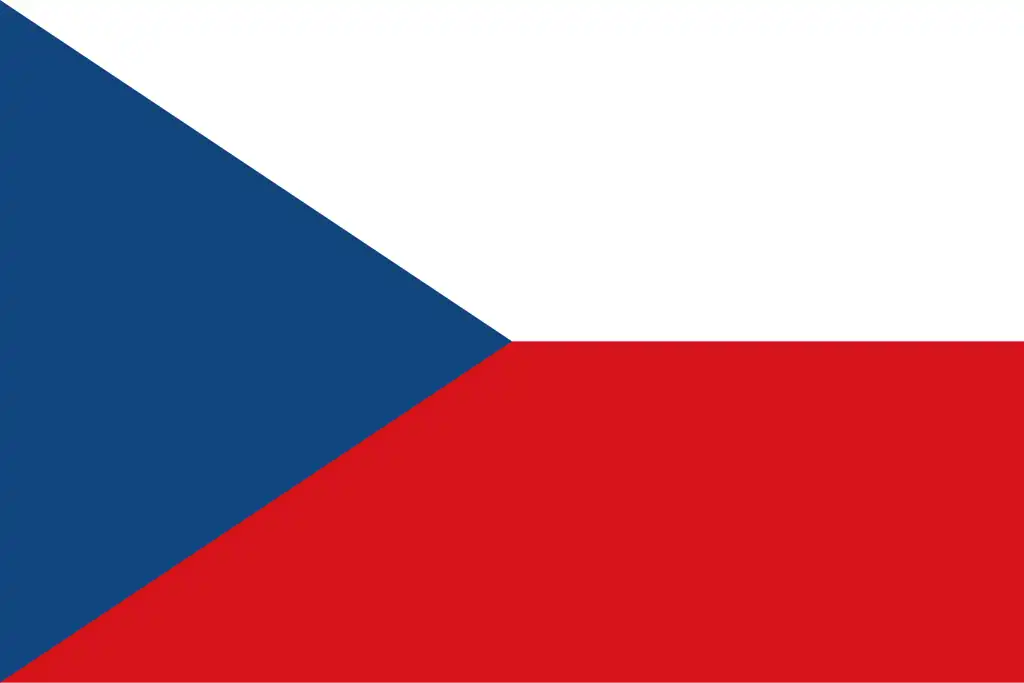Statistical Data for Czechia
Czechia, also referred to as the Czech Republic, is a country located in Central Europe. With no direct access to the ocean it borders Poland from the north, Slovakia from the east, Austria from the south, and Germany to the west. The landscape of the country is varied, featuring verdant plains, low highlands, and meandering hills.
There are roughly 10.7 million people living here, and most of them live in cities like the capital, Prague. The Czechia population is comparatively uniform, with most citizens identifying as Czech. With a Czech republic literacy rate and a demanding interest in higher education, the population is also relatively well-educated.
Land of Czechia
Known for its breathtaking landscapes and wealthy cultural heritage, Czechia is a country with a wide variety of flora and fauna. Those who love nature can engage in a variety of outdoor activities in Czechia, whether it's the rough terrain of the Krkonoše Mountains, or the undulating hills of the Bohemian Paradise. Unique ecosystems of the country are preserved by the existence of numerous national parks and protected areas.
Besides a rich history, and breathtaking natural beauties, Czechia is also a home to architectural treasures. The country is filled with quaint towns that take tourists back in time, Gothic cathedrals, and mediaeval castles. Prague, the capital, is a well-regarded tourist attraction and a UNESCO World Heritage Site because of its well-preserved historic centre. The world-famous beer culture in Czechia, traditional folk music, and thriving arts sector all contribute to its wealthy cultural legacy.
To sum up, the Czech Republic has a varying territory, where history-rooted traditions meet modernity. Visitors to Czechia will be enthralled by its charming nature and wonderful city-building, whether they want to explore countryside or immerse themselves in the vibrant city life.
Climate of Czechia
With pleasant summers and chilly, snowy winters, Czechia enjoys a temperate continental climate. Though temperatures during winters can fall below freezing and precipitation is frequent, summertime comes with temperatures 20-25 degrees Celsius. Sudden day-to-night temperature changes, especially when it's the summer, are another well-known feature of the Czech Republic.
Czechia's topography, the hilly areas in the north and west help to shape the weather patterns, and since it's landlocked in Central Europe both affect the climate. There are four particular seasons in the Czech Republic as well; spring and autumn are generally mild and refreshing. Environment makes it possible to engage in a wide range of outdoor activities, from touring the country’s ancient capitals and villages to hiking and skiing in the mountains.
Languages of Czechia
The majority of people in the country speak Czech, a West Slavic language that is the official language of Czechia. Czech is renowned for its extensive vocabulary, which contains Latin, German, and French loanwords, as well as its intricate syntax. Slovak, German, and Polish are among the minority languages spoken here in addition to Czech.
Its history as a multiethnic and multicultural country is reflected in linguistic diversity. The history of previous migrations and territorial shifts is shown by the existence of minority languages throughout the country. The minority languages spoken in Czechia are being preserved and promoted, despite the fact that Czech is the primary language in the government, media, and educational system.
All things considered, the linguistic framework of Czechia reflects its inexhaustible history and cultural legacy. It is an interesting topic for linguists and language enthusiasts to explore because of the multilingualism that is shared here, which also contributes to its language depth and complexity.
Demographic trends
The Central European country is a home to about 10.7 million people. The Czech Republic population is ageing and birth rates are dropping, according to demographic statistics. Increased Czech Republic life expectancy, decreased fertility rates, and the emigration of younger generations in pursuit of greater economic prospects are some of the causes contributing to the Czech Republic health statistics transition.
The economy and healthcare system of Czechia face hindrances as a result of the country's ageing population. The Czech Republic health profile highlights the general well-being of its population, reflecting factors such as access to healthcare services and overall health awareness. Concern over the sustainability of healthcare and pension systems is developing as fewer people of working age are available to care for the elderly. This demographic shift could exacerbate the Czech Republic disease burden, as an aging population may face increased healthcare needs and chronic conditions. To support population growth, policies that support family-friendly initiatives and young families are also necessary, as indicated by the dropping birth rates.
The government has taken action to address the low birth rates, Czech Republic mortality rates, and ageing population in response to such Czech Republic demographics. These include programs aimed at helping families, enhancing healthcare for the aged ones, and luring in highly qualified professionals. Czechia can better prepare for the future and guarantee the welfare of its people by comprehending and adjusting to these swings.
Czechia interesting facts
The Czech Republic is celebrated for its potent culture. Prague Castle, the biggest castle in the world, is located in Czechia, which is an intriguing fact about the country. For more than a millennium, Czech presidents, emperors, and kings have resided in this magnificent building. If you're ever dialing internationally to learn more about the country, Czechia country code is +420.
Significant examples of Gothic, Baroque, and Renaissance structures can be seen all around the Czech Republic. This is also renowned for its exquisite architecture. The well-preserved historic core of Prague, a UNESCO World Heritage Site, is the most well-known feature of the capital. All things considered, Czechia is a country with a rich cultural history and a wealth of fascinating sites just waiting to be unearthed.
